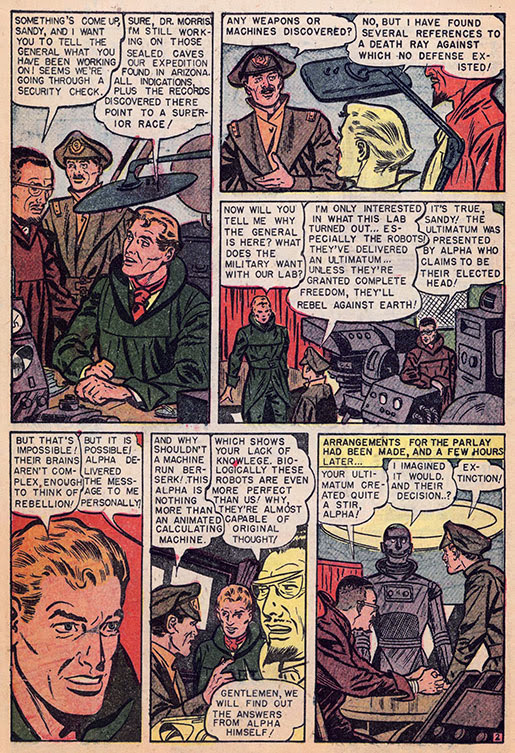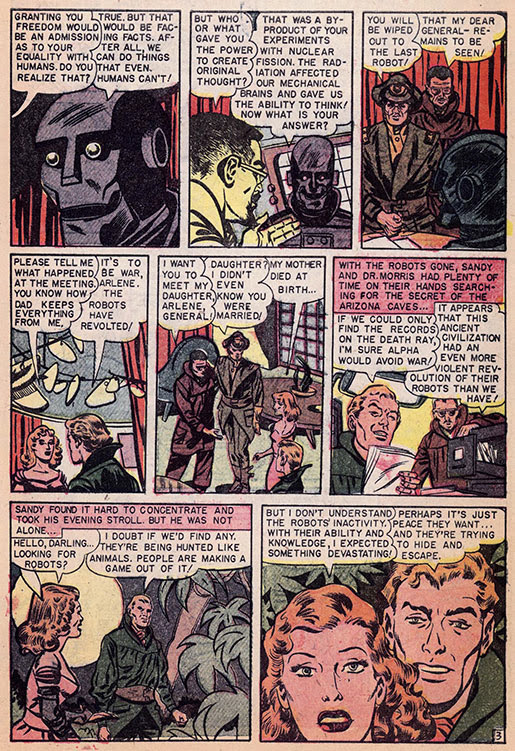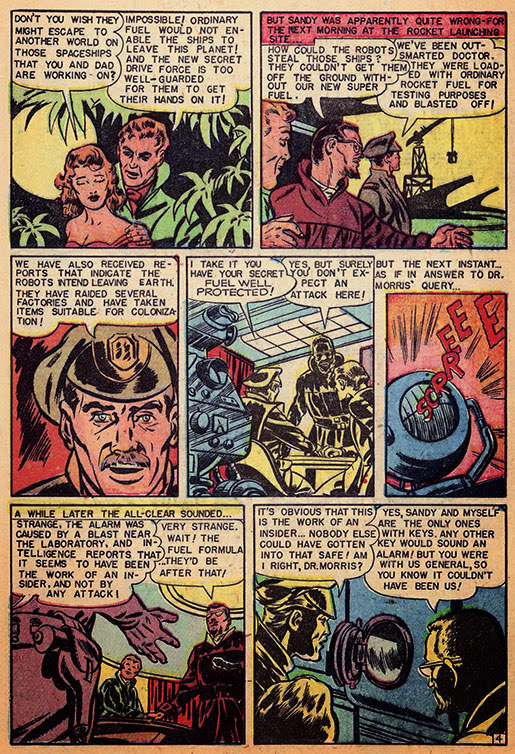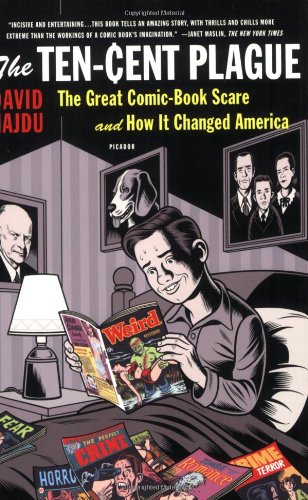We Have Already Seen...
...teleported to a future Earth where his invention, an artificial intelligence system called Cerebrus, has taken control of humanity, Tony Stark is sentenced to death by rebels who believe if they kill him before he creates Cerebrus, the future will be changed!
Before the sentence can be carried out, drones sent by the AI invade the rebels' refuge and Stark, along with Krylla (a scientist who disagreed with killing Tony), escape in the confusion.
In the ruins of a nearby museum, the duo discover an intact set of Iron Man armor which Tony's chestplate battery charges just in time...as...
In the ruins of a nearby museum, the duo discover an intact set of Iron Man armor which Tony's chestplate battery charges just in time...as...





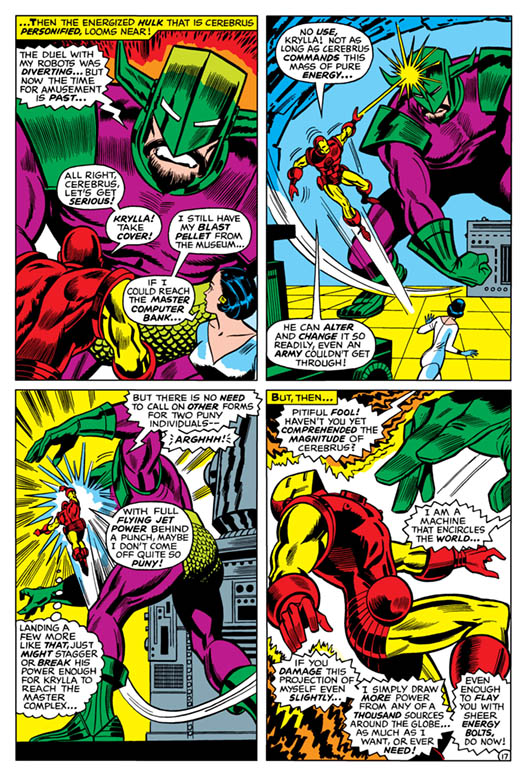



The idea of Tony Stark creating an AI like Cerebrus was utilized in the movie Avengers: Age of Ultron, where Ultron (created in Avengers comics around the same time as this story, but by Henry [Goliath] Pym) was also devised to help mankind, but went rogue.
This never-referenced-since story from Marvel's Invincible Iron Man #5 (1968), written by Archie Godwin, penciled by George Tuska, and inked by Johnny Craig is one of several "pocket universe" stories that occurred around this time at Marvel. which didn't usually do alternate universe tales like DC's Earth-One/Earth-Two/etc. multiverse to explain contradictory continuity elements.
Of course, all that's currently gone out the window with both DC and Marvel rebooting everything on an annual basis...Support Atomic Kommie Comics














